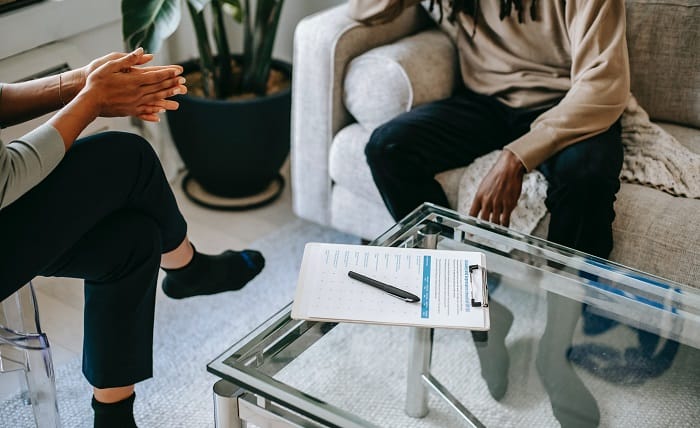Many people find that they become tired after drinking alcohol, which is an entirely common experience.
The effects of this substance as a depressant mean that a previously energetic body will begin to slow down and ease itself into a more restful state.
The mistake here is in assuming that this means alcohol aids with sleep. It does not.
Using alcohol to get to sleep is not only an ineffective approach to addressing sleeping disorders, it also runs the risk of developing into an extremely serious alcohol addiction which can need full alcohol rehab to properly overcome.
The effects of alcohol on sleep are varied and multi-faceted, having a significant impact on the length, frequency and quality of a person’s sleep due to the many ways in which alcohol affects the body and mind.
This article will explore precisely what alcohol does to sleep, the benefits that quitting alcohol can have on sleep, how one can limit their alcohol use to best avoid its impact on sleep and various other things a person can do to ensure that they get a good night’s sleep.
Are you worried that you or a loved one may be developing alcohol addiction? Talk to a member of our team for free on 0800 088 66 86

Alcohol has several clear impacts on sleep, carrying the potential to have a devastating impact on this vital function in a few key ways.
Because of the way alcohol affects the body and the mind, our sleep can become severely disrupted during periods of excessive alcohol use.
This can be broken down into a few key areas.
REM or Rapid Eye Movement sleep is the deepest part of a sleep cycle, making up 20-25% of the average length of time someone is asleep for.
This is one of the most essential parts of sleep and is largely responsible for the mental and physical health benefits one experiences after a good night’s sleep.
Alcohol causes a person to spend less time in REM sleep, [1] ultimately causing sleep to be less deep and less restful. This can lead directly to conditions such as higher blood pressure and an increased likelihood of experiencing feelings of depression and anxiety.
Alcohol use before sleep can also lead to what is termed as a rebound effect. [2]
This is when the effects of alcohol begin to wear off throughout the night as the body metabolises it.
This can mean that sleep is more staggered and restless, resulting in the fragmentation of a regular sleep cycle and less time in REM sleep overall.

The circadian rhythm is the “internal clock” that regulates the times at which our body is alert or getting ready for rest, responding primarily to the level of light in our environment.
This is why we feel more awake when it is light and feel sleepier when it is dark
Alcohol use in general causes issues with the circadian rhythm, [3] causing us to feel alert and asleep at unsuitable times.
This largely results in an ineffective and difficult sleep cycle.
As a depressant alcohol causes our muscles to relax, releasing tension and causing our bodies to loosen.
This includes muscles like the jaw and the throat, which is why some people snore when they have fallen asleep after drinking alcohol.
Snoring and sleeping with an open mouth due to alcohol can cause a sore throat, dry mouth and other uncomfortable sensations, as well as a frequent need to urinate throughout the night as alcohol is a diuretic (it increases the production of urine).
All of this can contribute towards a disrupted night’s sleep and significant discomfort when waking up the next morning.
This is even worse if one has drunk to excess and is experiencing a hangover.
Drinking in general can increase your risk of developing sleep apnoea. [4]
Sleep apnoea is a medical condition involving narrowed airways that causes significant difficulty breathing at night.
Sleep Apnoea can lead to a wide range of additional health issues, [5] including:
All of this can further interfere with sleep and generally decrease quality of life.
To learn more about how alcohol can impact your sleep, call us today on 0800 088 66 86

Quitting alcohol comes with a whole host of general benefits for physical and mental health, including improvement in sleep.
Generally speaking, quitting alcohol can lead to:
This comes on top of the general benefits of being well-rested, which can include everything from improved heart health and a stronger immune system to better concentration and reduced stress levels.
It should be noted, however, that temporary insomnia can be a symptom of alcohol withdrawal, meaning that someone who stops drinking alcohol can find their sleep initially getting worse.
Like any alcohol withdrawal symptom, this is a temporary issue and one that the body will overcome if given enough time.
Although it may seem counter-intuitive and be a difficult thing to experience, the potential benefits of quitting alcohol make it worth it.
Learn more about how quitting alcohol use can improve your life by calling us today on 0800 088 66 86

Although quitting alcohol entirely is the best way to ensure that sleep quality improves, some people are not ready to consider complete abstinence.
In these cases, there are still many things that can be done to limit the impact of alcohol on sleep and work towards a better quality of sleep overall.
Avoiding any alcohol three hours before going to sleep can give your body enough time to process the alcohol and get it out of your system.
This will help to limit the disruption to sleep that alcohol causes – both directly as regular sleeping patterns will not be interrupted by the body metabolising alcohol, and indirectly as the diuretic effects of alcohol should be minimal, meaning the person will not need to get up in the night to urinate.
Obviously, if a person drinks excessively they will have more alcohol in their system and therefore a more disrupted sleep.
Drinking less alcohol can help to avoid both disrupted sleep and prevent hangovers the next morning.
This is also a key aspect to remember in relation to the 3-hour rule.
In some cases, 3 hours will not be enough to metabolise a significant amount of alcohol, whilst some people will have a low enough metabolic rate that 3 hours will not be enough to deal with even a small amount of alcohol.
Considering your own limits and ability to process alcohol is key to preserving your sleep when drinking.

One of the main effects of alcohol is dehydration, which can be linked to many of its other effects such as headaches and in particular the experience of a hangover.
Regular hydration will help to limit the sleep disruption caused by alcohol by ensuring that the body stays hydrated, allowing it to recover more quickly and metabolise alcohol more effectively.
Regular water consumption also provides an alternative to alcohol for satiating thirst, potentially lowering the amount of alcohol drunk in the first place.
However, consuming more liquids will make you need to urinate more, meaning overhydration can actually have a negative effect on uninterrupted sleep in certain circumstances.
Limit your alcohol use or end it entirely with the help of drug and alcohol rehab professionals – call us today on 0800 088 66 86

Due to a misunderstanding of the exact way in which alcohol works, some people use this substance to aid their sleep.
As we have already stated this is not how alcohol works and will ultimately worsen a person’s sleep rather than help it.
If a person is struggling with insomnia or other forms of disrupted sleep, however, there are several things that can be done to help them.
Common practices for improving sleep quality include:

Not every individual will need professional help to improve their sleep or to overcome an alcohol abuse issue, but help is always available.
Whether you’re concerned about the effect alcohol has had on your sleep schedule, you’re worried that your use of alcohol has become habitual, or just want to learn more about alcohol addiction, our team is ready to help you.
Rehab 4 Addiction has been providing advice and guidance to addiction sufferers for many years, helping thousands of people across the UK and beyond to find the help they need to beat drug and alcohol addiction.
If you want to leave alcohol abuse in the past, give our friendly team a call today for free on 0800 088 66 86
We’re here to help you beat addiction for good.
[1] https://doi.org/10.1016/j.alcohol.2014.07.019
[2] https://pmc.ncbi.nlm.nih.gov/articles/PMC6707127/
[3]https://pmc.ncbi.nlm.nih.gov/articles/PMC6707123/
[4] https://www.sciencedirect.com/science/article/pii/S1389945717315988?via%3Dihub